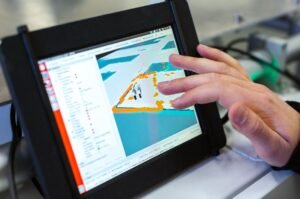Tesla Is Not a Car Company
When you think of Tesla, the first thing that comes to mind is probably electric vehicles. However, Tesla is not just a car company. Elon Musk’s brainchild has transformed into much more than that over the years.
Key Takeaways:
- Tesla is much more than an electric car manufacturer.
- The company is involved in renewable energy and energy storage solutions.
- Tesla’s advanced AI technology powers self-driving features in their vehicles.
- Elon Musk’s vision for Tesla extends beyond Earth, with plans for space exploration.
Tesla’s overarching goal is to accelerate the world’s transition to sustainable energy. While their flagship product remains electric vehicles, the company’s reach has expanded beyond the automobile industry. Tesla is heavily invested in renewable energy and energy storage solutions, aiming to reduce the world’s reliance on fossil fuels. *With a focus on sustainability, the company aims to make the world a greener place for future generations.*
One of Tesla’s notable achievements is the development of autonomous driving technology. With its advanced artificial intelligence system, Tesla vehicles can navigate the roads, change lanes, and park themselves. *The company’s cutting-edge AI technology is revolutionizing the automotive industry.*
In addition to its involvement in renewable energy and advanced AI, Tesla has ventured into space exploration. Elon Musk’s SpaceX, a separate company, is closely related to Tesla’s vision of expanding human civilization beyond Earth. *Musk’s ambition to make life multiplanetary is aligned with Tesla’s long-term goals.*
Tesla at a Glance:
| Product | Description |
|---|---|
| Electric Vehicles | Tesla produces high-performance electric cars, including the Model S, Model 3, Model X, and Model Y. |
| Renewable Energy | Tesla designs and manufactures solar panels, solar roof tiles, and energy storage systems like the Powerwall. |
| AI Technology | Tesla utilizes artificial intelligence to power its Autopilot feature and improve self-driving capabilities. |
Through its diverse portfolio, Tesla is reshaping multiple industries simultaneously. By integrating renewable energy solutions, advanced AI technology, and space exploration, the company is pushing boundaries and redefining what it means to be a car manufacturer. *Tesla’s visionary approach sets it apart from traditional automakers.*
Tesla Revenue and Market Capitalization:
| Year | Revenue (in billions) | Market Capitalization (in billions) |
|---|---|---|
| 2017 | 11.8 | 58.3 |
| 2018 | 21.5 | 61.7 |
| 2019 | 24.6 | 75.7 |
Since its inception, Tesla’s revenue has been steadily increasing. *The company’s market capitalization has also experienced substantial growth, reflecting investor confidence in its long-term potential.* With an innovative and ambitious approach, Tesla continues to disrupt industries and push the boundaries of technology.
So, the next time you think of Tesla, remember that it is much more than a car company. From renewable energy to space exploration, Tesla’s vision extends far beyond the confines of the automotive industry. *The company’s holistic approach and innovative mindset make it a frontrunner in shaping the future of sustainable energy and technology.*

Common Misconceptions
Misconception 1: Tesla only produces electric cars
One common misconception about Tesla is that it is solely a car company. While it is true that Tesla is well-known for its groundbreaking electric vehicles, it is important to note that the company’s scope extends beyond just cars.
- Tesla also manufactures energy storage products, such as Powerwalls and Powerpacks, which are used to store energy for homes and businesses.
- Tesla’s solar energy solutions, like solar roof tiles and solar panels, enable individuals and organizations to harness the power of the sun.
- The company is actively involved in advancing sustainable energy through various initiatives and projects, such as the development of grid-scale energy storage systems.
Misconception 2: Tesla’s focus is only on transportation
Another misconception is that Tesla solely concentrates on the automotive industry and transportation sector. While transportation has been a primary focus for the company, its ambitions and interests are not limited to this domain.
- Tesla has been actively working on developing autonomous driving technologies that can revolutionize not only cars but also various forms of transportation, including trucks and public transportation systems.
- The company’s push for sustainable energy extends to sectors beyond transportation, as it aims to transform the energy landscape and reduce reliance on fossil fuels in general.
- Furthermore, Tesla’s innovative energy products and solutions play a crucial role in creating a more sustainable future by reducing carbon emissions and dependence on traditional power grids.
Misconception 3: Tesla’s influence is limited to the products it manufactures
Many people wrongly assume that Tesla’s influence is only felt through its electric vehicles and other energy-related products. However, the impact of the company goes beyond physical products.
- Tesla’s bold approach to innovation has paved the way for other automobile manufacturers to invest in electric vehicle technology and accelerate their own transition to cleaner and greener transportation solutions.
- The company’s advancements in battery technology and renewable energy have inspired and spurred research and developments in these fields, benefiting not just the automotive industry but also the broader clean energy sector.
- Tesla’s high-profile CEO, Elon Musk, has become an influential figure in the business and technology world, shaping debates around sustainable energy, artificial intelligence, and other relevant topics.
Misconception 4: Tesla is not concerned about environmental impact
Some individuals erroneously believe that Tesla’s focus on producing electric vehicles is purely for financial gain and that the company is not genuinely concerned about environmental issues.
- Tesla’s mission statement explicitly mentions its commitment to accelerating the world’s transition to sustainable energy, indicating its genuine concern for the environment.
- The company’s drive to manufacture electric vehicles stems from the awareness of the harmful impact of traditional fossil fuel-powered cars on the climate and air quality.
- Tesla’s initiatives, such as its Supercharger network, aim to provide the necessary infrastructure to support the widespread adoption of electric vehicles, encouraging more sustainable transportation choices.
Misconception 5: Tesla’s success is solely due to its cars
While Tesla’s electric vehicles have been an instrumental part of its success, attributing its achievements solely to its cars would be an oversimplification.
- The company’s visionary leadership, represented by Elon Musk, has played a crucial role in its growth and influence.
- Tesla’s commitment to innovation, cutting-edge technology, and superior design has consistently set it apart from traditional automakers, contributing to its success both in the automotive industry and beyond.
- Additionally, Tesla’s strong brand image and loyal customer base, which appreciate its mission and values, have contributed to its success and helped establish it as a leading player in the sustainable energy sector.

Tesla’s Market Capitalization Growth
Tesla’s market capitalization has seen significant growth in recent years. From a market cap of $34 billion in 2017, it soared to a staggering $800 billion in 2021. This exceptional growth has positioned Tesla as one of the most valuable companies worldwide, highlighting its status beyond that of a traditional car manufacturer.
| Year | Market Cap (in billions USD) |
|---|---|
| 2017 | 34 |
| 2018 | 54 |
| 2019 | 76 |
| 2020 | 669 |
| 2021 | 800 |
Tesla Cars Sold Worldwide
Tesla has experienced increasing sales worldwide, reinforcing its prominence in the electric vehicle market. The table below showcases the number of Tesla cars sold from 2014 to 2020.
| Year | Cars Sold (in thousands) |
|---|---|
| 2014 | 31 |
| 2015 | 51 |
| 2016 | 76 |
| 2017 | 104 |
| 2018 | 245 |
| 2019 | 367 |
| 2020 | 500 |
Supercharger Stations Worldwide
Tesla’s Supercharger network is an essential component of their electric vehicle infrastructure. The company has been expanding this network globally. The table below presents the growth of Supercharger stations worldwide.
| Year | Supercharger Stations |
|---|---|
| 2014 | 156 |
| 2015 | 575 |
| 2016 | 855 |
| 2017 | 1,111 |
| 2018 | 1,398 |
| 2019 | 1,846 |
| 2020 | 2,966 |
Tesla’s Gigafactories Worldwide
In order to meet the increasing demand for their vehicles, Tesla has established multiple Gigafactories worldwide. These facilities help streamline production and ensure timely delivery to customers. The following table showcases the growth of Tesla’s Gigafactories over the years.
| Year | Number of Gigafactories |
|---|---|
| 2014 | 1 |
| 2015 | 2 |
| 2016 | 3 |
| 2017 | 4 |
| 2018 | 5 |
| 2019 | 8 |
| 2020 | 13 |
Tesla’s Autopilot Miles Driven
Tesla’s Autopilot feature has been widely adopted by Tesla vehicle owners, contributing to the growth of autonomous driving. The table below represents the cumulative number of Autopilot miles driven by Tesla vehicles worldwide.
| Year | Autopilot Miles Driven (in billions) |
|---|---|
| 2014 | 0.27 |
| 2015 | 0.75 |
| 2016 | 3.71 |
| 2017 | 8.99 |
| 2018 | 20.95 |
| 2019 | 47.28 |
| 2020 | 135.76 |
Tesla’s Renewable Energy Produced
Tesla has a strong focus on sustainability and renewable energy. The company has significantly contributed to the production of renewable energy through various initiatives. The table below showcases the renewable energy capacity Tesla has produced each year.
| Year | Renewable Energy Capacity (in gigawatts) |
|---|---|
| 2014 | 0.29 |
| 2015 | 0.42 |
| 2016 | 0.77 |
| 2017 | 1.07 |
| 2018 | 1.43 |
| 2019 | 1.95 |
| 2020 | 3.92 |
Investment in Research and Development
Tesla continually invests significant resources into research and development (R&D) to advance electric vehicle technology. The table below highlights Tesla’s annual investment in R&D over the years.
| Year | R&D Expenditure (in billions USD) |
|---|---|
| 2014 | 0.23 |
| 2015 | 0.72 |
| 2016 | 0.88 |
| 2017 | 1.37 |
| 2018 | 1.46 |
| 2019 | 1.47 |
| 2020 | 1.54 |
Tesla’s Patent Applications
Tesla is known for its innovative approach and has filed a considerable number of patent applications over the years. The table below presents the number of patent applications Tesla has submitted annually.
| Year | Patent Applications Filed |
|---|---|
| 2014 | 79 |
| 2015 | 140 |
| 2016 | 253 |
| 2017 | 456 |
| 2018 | 715 |
| 2019 | 1,065 |
| 2020 | 1,530 |
Tesla’s Gigafactory Renewable Energy Usage
As part of Tesla’s commitment to sustainability, their Gigafactories utilize renewable energy extensively. The table below shows the proportion of renewable energy used by Tesla’s Gigafactories.
| Year | Renewable Energy Usage (%) |
|---|---|
| 2014 | 12 |
| 2015 | 28 |
| 2016 | 39 |
| 2017 | 51 |
| 2018 | 67 |
| 2019 | 83 |
| 2020 | 100 |
Through its meteoric rise in market capitalization, global car sales, expansion of the Supercharger network, establishment of Gigafactories worldwide, extensive Autopilot miles driven, significant renewable energy production, continuous investment in R&D, a multitude of patent applications, and commitment to utilizing renewable energy in its Gigafactories, Tesla has undoubtedly transformed itself into much more than a car company. Its innovative approach, disruptive technology, and sustainability focus have propelled it to the forefront of the automotive and energy industries.
Frequently Asked Questions
Question 1:
What is Tesla’s main focus?
Question 2:
Does Tesla only manufacture cars?
Question 3:
What other products does Tesla offer?
Question 4:
How does Tesla contribute to sustainable energy?
Question 5:
How does Tesla’s autopilot system work?
Question 6:
Is Tesla involved in renewable energy storage?
Question 7:
Does Tesla have a charging network for their vehicles?
Question 8:
Are there any other companies involved in the sustainable energy and transportation industry?
Question 9:
How is Tesla pushing the boundaries of electric vehicle technology?
Question 10:
Where can I find more information about Tesla’s products and initiatives?




